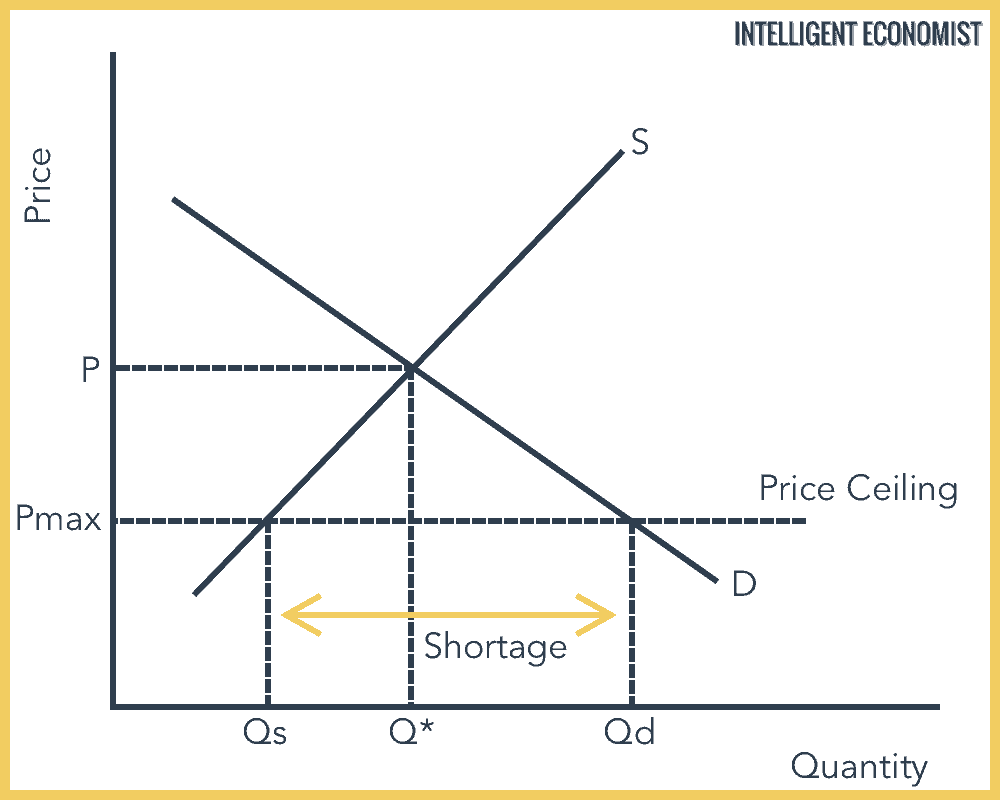The effect of government interventions on surplus.
A price floor set below the equilibrium price leads to.
When a price floor is set above the equilibrium price quantity supplied will exceed quantity demanded and excess supply or surpluses will result.
B quantity of zero units.
Example breaking down tax incidence.
Price and quantity controls.
Price floors and price ceilings often lead to unintended consequences.
When they are set above the market price then there is a possibility that there will be an excess supply or a surplus.
When a price ceiling is set a shortage occurs.
The result is that the quantity supplied qs far exceeds the quantity demanded qd which leads to a surplus of the product in the market.
When quantity supplied exceeds quantity demanded a surplus exists.
A binding price ceiling leads to a n.
Minimum wage and price floors.
A price floor must be higher than the equilibrium price in order to be effective.
In the price floor graph below the government establishes the price floor at price pmin which is above the market equilibrium.
The result is a quantity supplied in excess of the quantity demanded qd.
A price floor is a government or group imposed price control or limit on how low a price can be charged for a product good commodity or service.
Once introduced at pmin the price floor will cause an excess supply surplus of q3 q1 because quantity demanded is q1 and quantity supplied is q3.
Price ceiling a price ceiling is a government set price below market equilibrium price.
When a price floor is set above the equilibrium price as in this example it is considered a binding price floor.
Price ceilings and price floors.
The equilibrium price commonly called the market price is the price where economic forces such as supply and demand are balanced and in the absence of external.
As seen in the diagram minimum price is set above the market equilibrium price.
Price floors are only an issue when they are set above the equilibrium price since they have no effect if they are set below market clearing price.
Price floors cause surpluses.
Taxation and dead weight loss.
This is the currently selected item.
It is an implicit tax on producers and an implicit subsidy to consumers.
In order for a price ceiling to be effective it must be set below the natural market equilibrium.
Do these create shortages or surpluses.
If set below the equilibrium price it would have no effect.
Price floors prevent a price from falling below a certain level.

